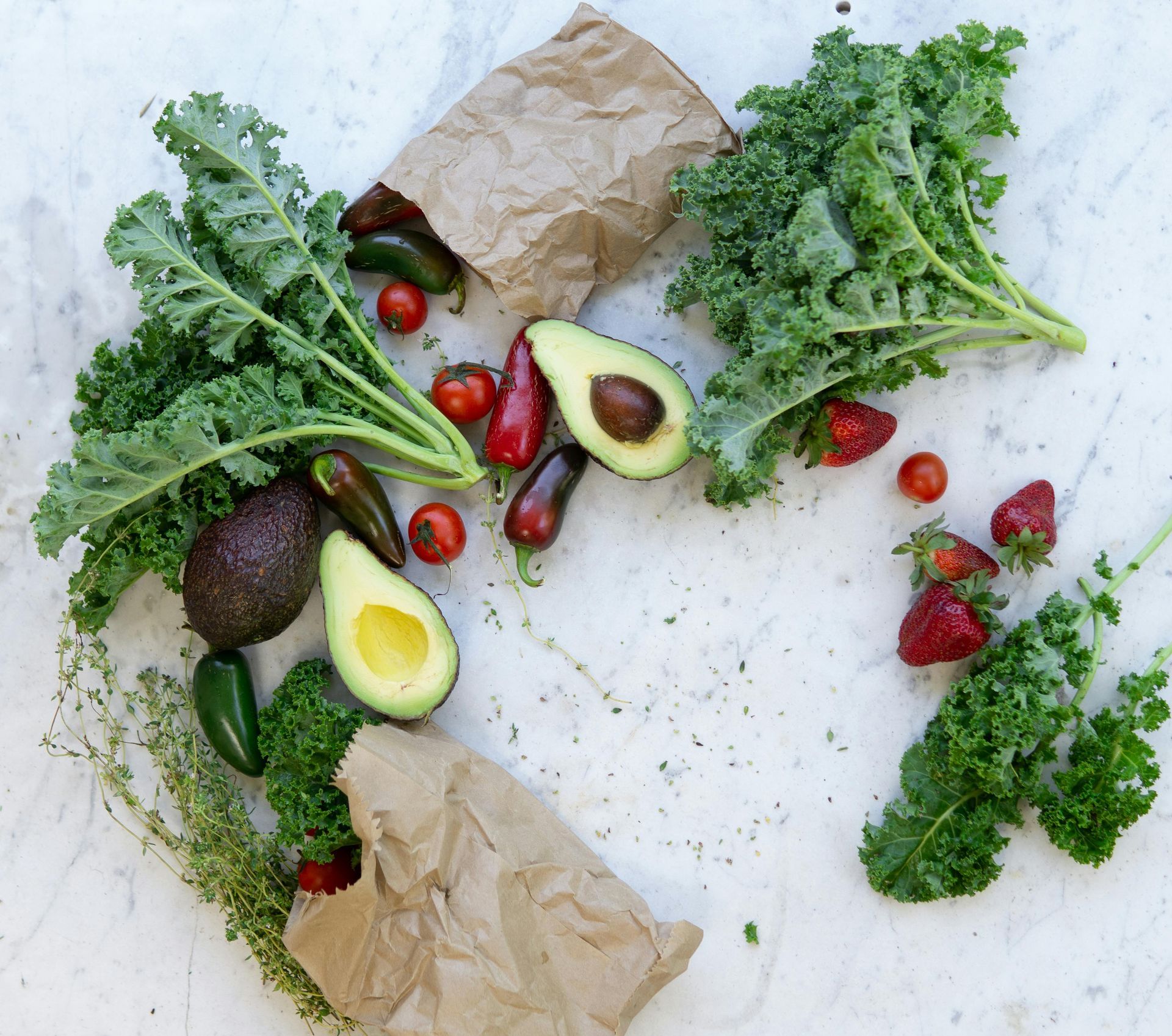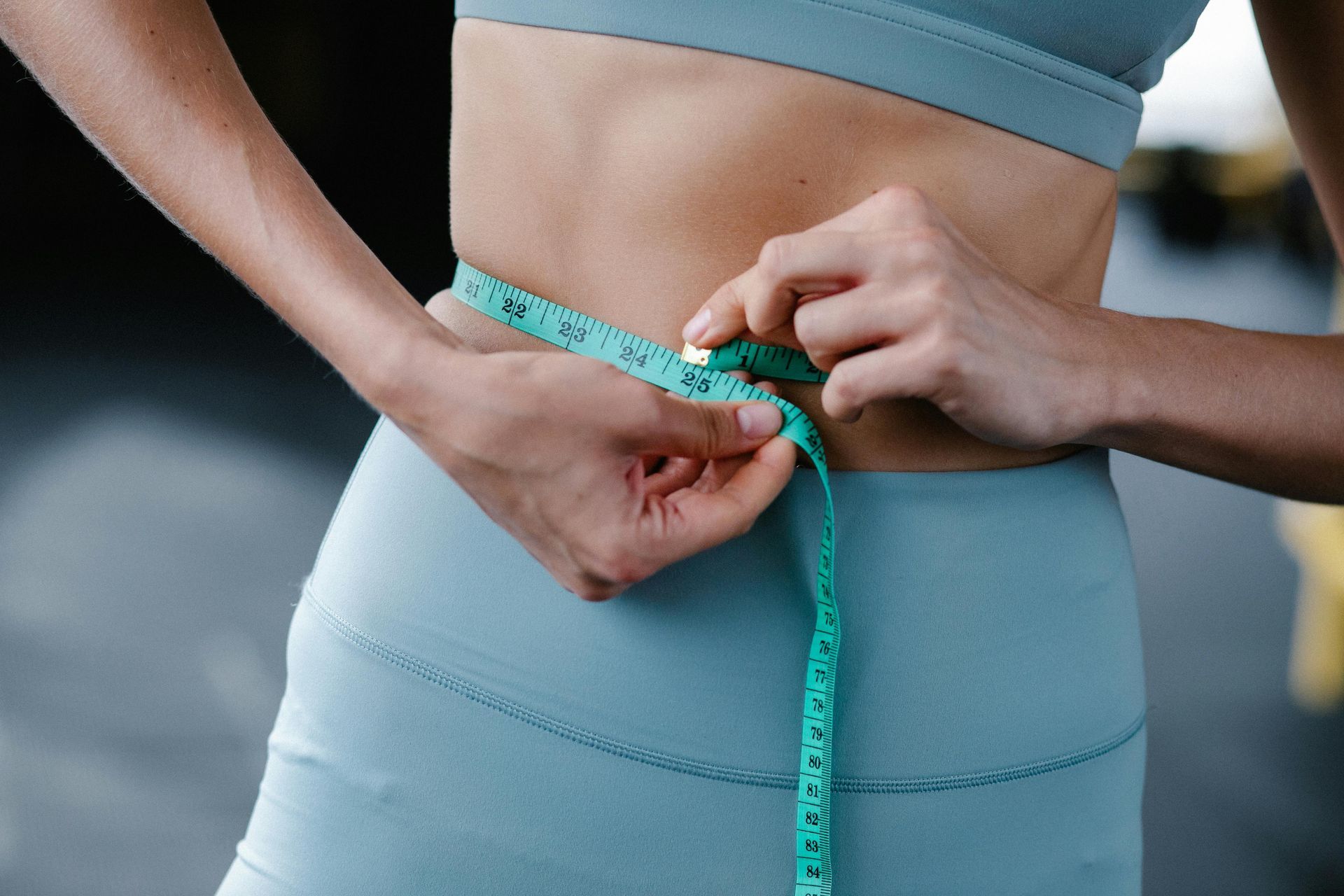Eating for Healthy Hormones: Foods to Boost Balance and What to Avoid
When it comes to balancing your hormones, what you put on your plate can make a big difference.

Hormones: The Best Balance Boosters!
The right foods can support healthy hormone production, improve your energy levels, and even help you get a better night’s sleep! On the flip side, some foods can throw your hormones off balance, potentially leading to fatigue, mood swings, and even weight gain. So, what should you eat—and what should you avoid—to keep your hormones happy? Here are a few of our favorite foods and tips over at Unique Health!
Hormonal Health: You are what you eat!
Hormones are the body’s chemical messengers, regulating everything from metabolism and mood to (of course, their most famous role) reproductive health. Your diet provides the building blocks for hormone production and can significantly impact how well your hormones function. Certain nutrients support hormone balance, while others can cause disruptions in their communication - Particularly in our world today of food dyes, “food-like products”, artificial sugars, and other concerning ingredients. It’s more important than ever to consider being a little more mindful about what’s going on your plate, and making tiny sustainable changes over the long haul is how we really see the best results! Here are some of our favorite hormone-loving foods, as well as a few that you may want to start steering clear of on your path to better hormone health and healthy aging!
1. As it turns out, fats do NOT actually make us fat.
We are a half a lifetime away from that withering diet advice that once told us to avoid fats at all costs. It turns out, fats do NOT actually make us fat - Healthy Fats are protective of our cells, provide long lasting energy, and if you’re looking for that youthful skin glow… You’ve come to the right nutrient! Healthy fats are also essential for hormone production. Foods like avocados, olive oil, and nuts provide monounsaturated fats, while fatty fish like salmon offer omega-3 fatty acids that support hormone health and actually can help reduce inflammation. Many studies including this one published in the Journal of Clinical Endocrinology & Metabolism support that omega-3s can help mitigate the body’s response to stress, reduce cortisol levels and even lower inflammation!
2. Kale shouldn’t be scraped into the garbage - Let’s get creative and keep it on your plate!
Think broccoli, kale, and Brussels sprouts (we particularly like this list from Food For Net that also gives you cooking ideas!) These veggies are rich in compounds that help the body metabolize and balance estrogen in particular. Incorporating more of these into your diet can be particularly beneficial for women dealing with symptoms related to estrogen dominance.
3. Fiber is not just for your grandmother - It’s for EVERYONE
Fiber helps stabilize blood sugar and can prevent insulin spikes, which are a major culprit in disrupting hormone balance. No, we’re not just talking about taking a Fiber One supplement! Fruits & Vegetables have a great dose of fiber, as do oats, flaxseeds, and whole grains. If you’re a rice lover, you’ll be excited to learn that the wild varieties with that nice chewy husk on the grains are much higher in fiber than their fully processed counterparts! Flaxseeds, are also a powerhouse—they contain lignans, compounds that specifically can help balance estrogen.
4. Let’s all be a little more like Popeye
Leafy greens like spinach and Swiss chard are rich in magnesium, which helps regulate cortisol, and therefore how well your body responds to stress. Magnesium also supports the adrenal glands, key players in your body’s stress response system, and also supports healthy sleep at night (which in turn reduces stress - funny how that works!) Adding a handful of greens to your daily meals is an easy way to support hormone health naturally - While I’m sure we’re all ambitious and would love to add 12 salads to our daily meal planning in our quest for healthy hormone levels, we really strongly encourage you to do what is realistic! In the long run, making changes little by little can make a big difference!
5. Protein isn’t just for weight lifters
Protein provides amino acids necessary for hormone production and keeps you feeling full (like fiber and healthy fats), which helps regulate insulin levels. Focus on clean sources like lean meats, eggs, and plant-based proteins like lentils and quinoa. Protein also helps support healthy muscle, which is particularly important if you’re considering hormone replacement therapy for improved vitality and balance, but also specifically for metabolic health! (Learn more on our
Women’s Health page)
Foods to Avoid for Hormone Health
1. Girl, kick that soda habit.
Sugar and processed carbs can cause blood sugar spikes, triggering insulin imbalances that may lead to weight gain and mood swings. High insulin levels can also influence estrogen and testosterone levels, disrupting the hormonal balance in your body. Try replacing sugary snacks and drinks with whole fruits (hooray for the fiber!) to satisfy your sweet tooth naturally.
2. Make fast food the exception, not the rule.
Found in many fried foods, packaged snacks, and fast food, trans fats can increase inflammation and disrupt the body’s hormone production. The American Heart Association recommends limiting trans fats, as they can interfere with insulin sensitivity and negatively impact overall hormone health.
3. Wake up to a Cup of Joe - Not Five
Okay, we hear you. This one might not be so easy. While a little caffeine can be a great pick-me-up, too much can elevate cortisol levels, which can disrupt sleep and end up leaving you feeling stressed, rather than being a great energy boost. If you find yourself relying on coffee throughout the day, we’d love to say you should try switching to herbal teas like chamomile or peppermint… but us coffee drinkers will never do that! So our suggestion would be to swap out half your caffeine coffee for decaf, replace one cup a day with water instead, and if the caffeine is from soda we would strongly encourage you to kick the soda habit altogether!!! Ultimately, it’s all about little changes over time.
4. Consider Ditching the Dairy
For some people, dairy can interfere with hormone levels due to the presence of natural hormones and growth factors. If you suspect dairy might be impacting your hormonal health, consider trying alternatives like almond milk, oat milk, or our favorite coconut milk! Remember, everyone’s body reacts differently, so pay attention to how you feel after consuming dairy, and consider keeping a meal journal to help you associate symptoms with what you’re dined on recently.
5. We do love pina coladas, and getting caught in the rain… Just not every day.
Regular alcohol consumption can strain your liver, which plays a key role in metabolizing hormones. Over time, this can lead to imbalances, particularly with estrogen. Moderation is key here—stick to one drink a day or less to minimize potential hormone disruption.
So, how can this help my hormones?
Happy hormones can mean better sleep, less fatigue, a better sex life, better mood, improved energy and so much more. Finding the right balance of foods can be a powerful way to support your hormones naturally, but it’s also important to recognize that creating healthier habits in itself can be stressful! Changing your diet overnight is STRESSFUL. Kicking soda, alcohol, and sugar all at once and starting to eat 9 servings of broccoli every day is STRESSFUL. Little changes over time can create the best results! If you are dealing with significant hormone imbalances, food is a great first step - However, if you’re experiencing symptoms like fatigue, weight gain, or mood swings, it might be time to explore hormone replacement therapy or other functional medicine diagnostics or treatment options. Our practice in Green Cove Springs offers personalized HRT plans tailored to your needs, helping you regain balance and vitality without a stressful diet overhaul.
Ready to take the next step? Visit our Hormone Replacement Therapy page to learn more about how we can support your journey to better health, or feel free to Contact Us with any of your hormone balancing and healthy eating questions - We’d love to help you get on the right track to your Unique Health!












